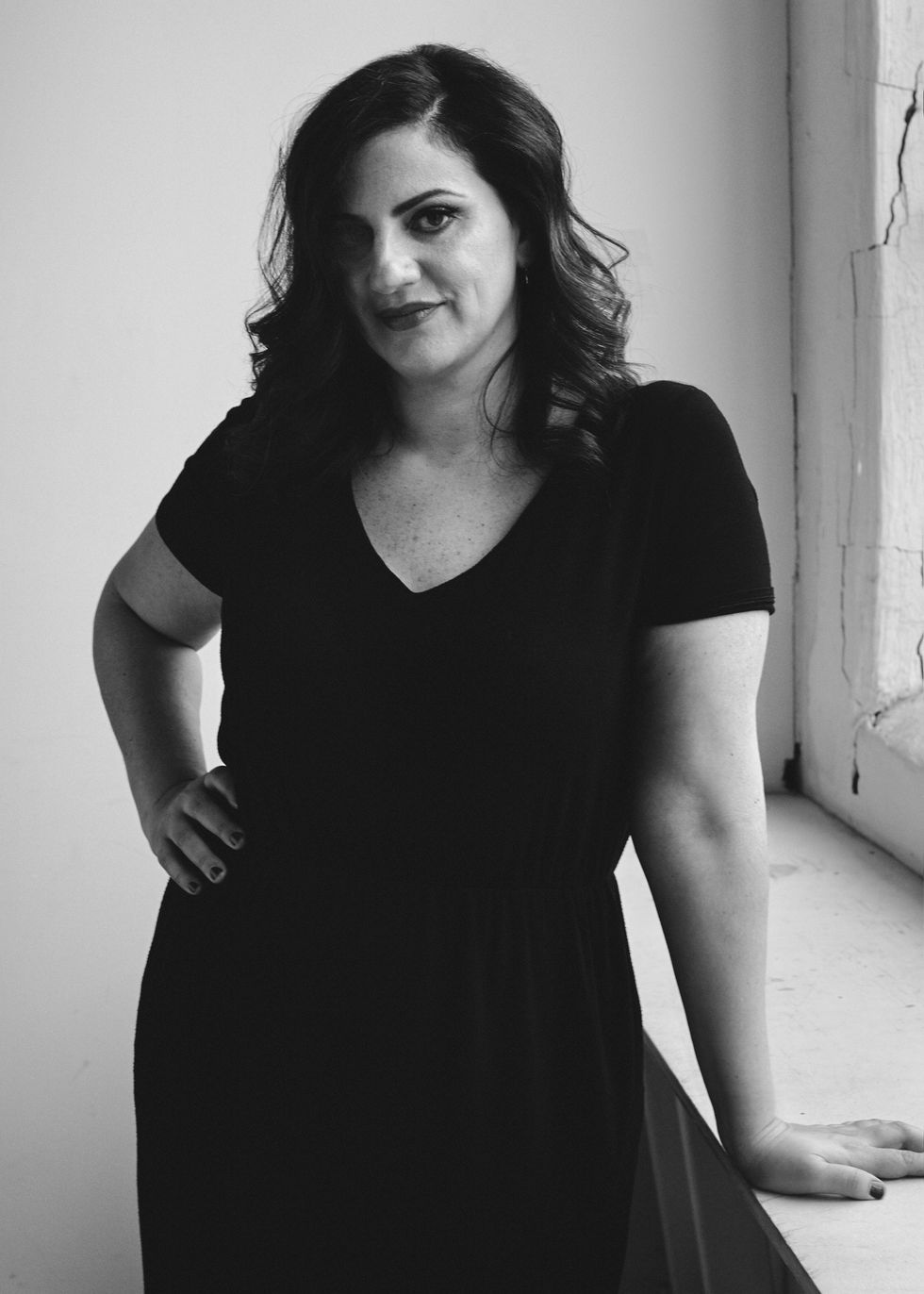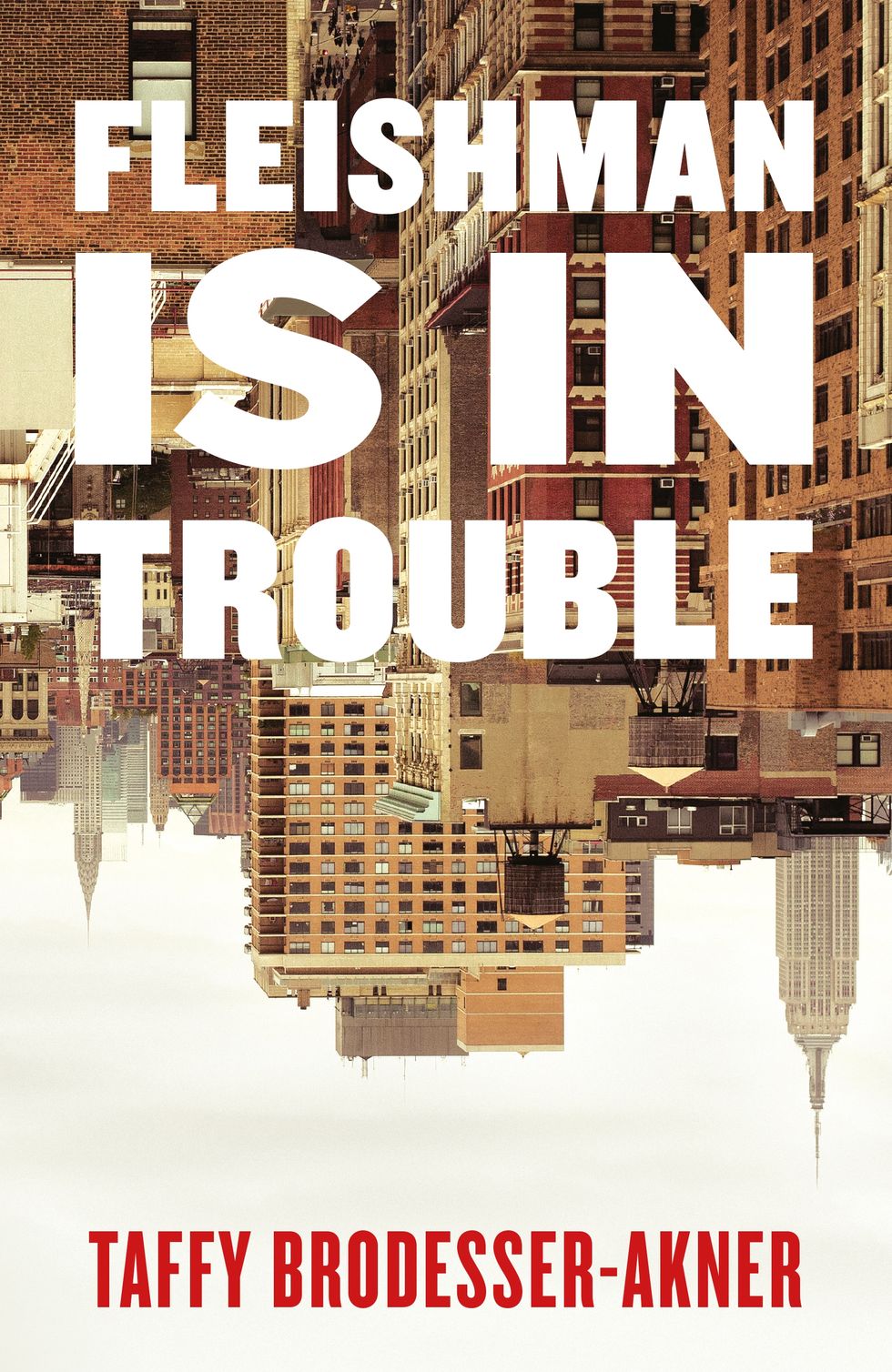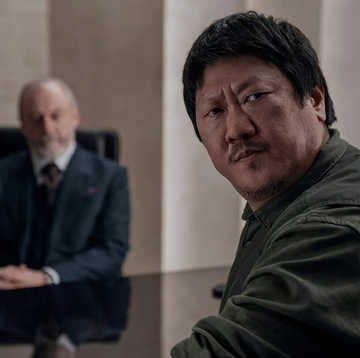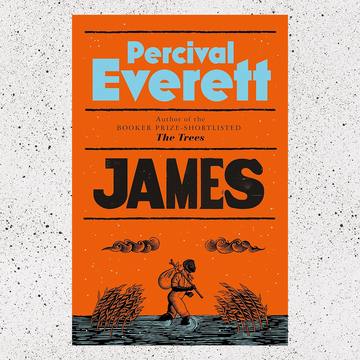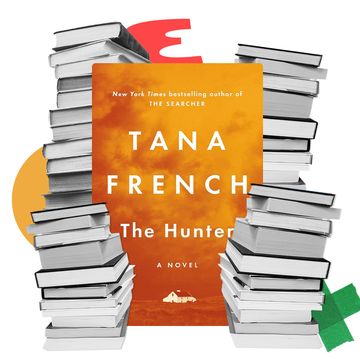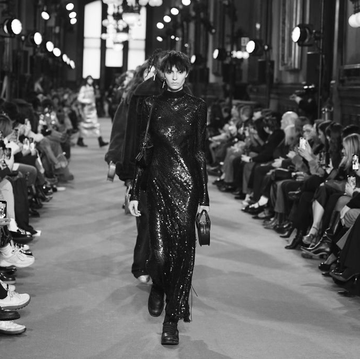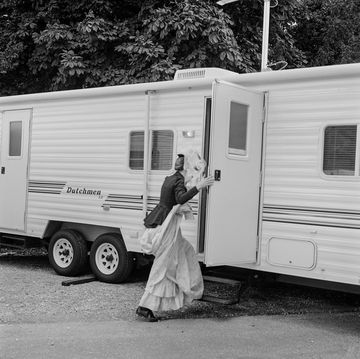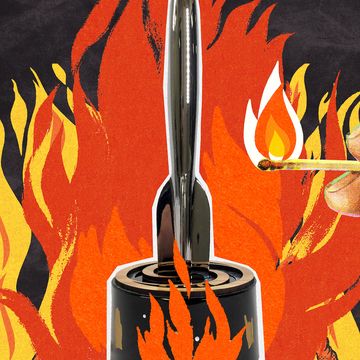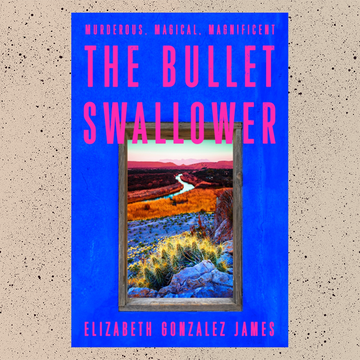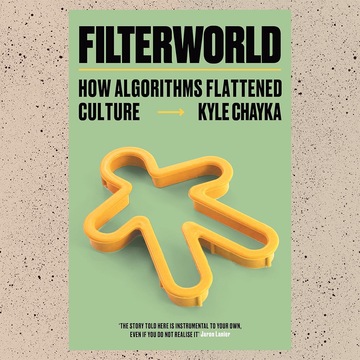Taffy Brodesser-Akner didn't mean to write a novel about divorce, or at least, that's not what she thought the story was about. When she turned forty her friends started coming to her to announce their marriages were over. “It really lit me on fire,” she tells me. “By the time they told me, they were already separated and had started using dating apps."
Watching their excitement at their phones being bombarded with desire and availability made her feel that she had mislabelled herself. She felt old, but seeing her friends seem so young made her less sure. It made her want to probe the jungle that these apps presented for those re-entering the dating scene, so different to the one they previously knew.
When the magazine she wrote for rejected the feature pitch she opened up a word document and started writing it as a novel.
Brodesser-Akner is a journalist whose profile interviews of celebrities such as Gwyneth Paltrow and Tom Hiddleston have exposed their occasional cigarette habit or Bolognese recipe, and considered why it is we love, or love to hate, these people so much. Previously a writer for ESPN and GQ, since 2017 she has been a New York Times staff writer where she has written about the diet industry's shift from Weight Watchers to wellness, and reported on the history of harassment cases against America’s biggest jeweller.
Her debut novel, Fleishman Is In Trouble, finds Dr Toby Fleishman newly released from his marriage and browsing the sexual supermarket of a Tinder-like app when his high-achieving wife dumps their children on him, and drops off the face of the earth. Tasked with managing his patients, ferrying his offspring around and feeding his thirsty inbox, he enters a sort of free fall where his rage at what his wife has done starts to paralyse him.
“I thought I was writing a novel about dating but it turned out I was writing a novel about marriage, and then it turned out I was writing a novel about divorce,” Brodesser-Akner tells me.
Initially it is a book about dating, and how a man wakes up single and finds his city, 'suddenly somehow now crawling with women who wanted him.' It is a world of sexually charged apps which offer a 'hot oxytocin testosterone cocktail' of purple devil emojis and underboob selfies.
As research Brodesser-Akner used "all the apps" both as a man and a woman, finding the same disparity in how she was received that she saw in her newly-single friends. “The women were stressed out about dating because they were getting dick pics for the first time,” she says. “The men... if they had anxiety, by the time I saw them, it was gone.”
It is this heroes welcome to the world of online dating that sold Brodesser-Akner on the idea of telling the story through a man's perspective, knowing that introducing readers to a woman navigating a hailstorm of 53 megapixel dick pics would not be quite so fun.
Through Toby lamenting his wife's failings to his friends Seth and Libby - a married journalist who serves as our Taffy-esque guide through this world - Fleishman is in Trouble becomes a book about marriage. We hear his account of how he was 'as ambitious as he was allowed to be', how the only time he ever felt Rachel was on his side was 'when she was working as hard as he was to make their misery seem normal', and the million other acts of pettiness and resentment that can pull two people apart.
The marriages that Brodesser-Akner saw ending around her felt sudden, and yet, she says, perhaps aware she's gifting me a headline: "as a married person, to not have questions about how loving marriages end is to be really asleep at the wheel."
Which is how it becomes a book about divorce, and why this is the point where, if this were an Avengers: Endgame review, this article would now say: spoilers ahead. But while the twist isn't the same lane swerve as, say, Gone Girl, it is a reveal that Brodesser-Akner is aware will change how you feel going into the book.
The shift has echoes of Lauren Groff's Fates and Furies, but manages to feel even more startling in its subtle recounting of the same information through a different lens. It is the sort of revelation that dawns on you slowly, like how an argument starts to replay differently in your head the more time passes.
The first draft of the book didn't go this way, but her journalistic instinct stepped in. "In every profile I write I find myself falling in love with a person and then I have to be a journalist and ask myself: ‘what would the other people in this person’s life say about them?’" she explains.
Fleishman is in Trouble will surely have readers debating sides as, similarly to Kristen Roupenian's New Yorker short story Cat Person, it allows for endless interpretations of the minutia of a relationship. It's deftly done, like Matthew Klam's Who is Rich? or Andrew Martin's Early Work it leans away from casting any final judgement or moral retribution. In her novel, as in her profiles, “everybody's behaviour is defensible.”
In Brodesser-Akner's writing she often emerges late on in the piece as a witness who we've been living through but forgot was there. While she doesn't come into focus quite as clearly in Fleishman is in Trouble, the novel ends on a sucker-punch that feels distinctly hers.
She wrote the final pages of the book after seeing women wearing pantsuits taking their daughters in t-shirts reading, ‘The Future is Female’ to vote for the first female president. “As you know,” she laughs. “That did not really turn out to be, so watching that optimism turn into anger was very influential on me.”
These kind of inspiring t-shirts show up in the book with Libby's commentary that 'the only reason it's tolerated is that everyone knows it's just a lie we tell girls to make their marginalisation bearable.'
Although the book was sold three months before the news about Harvey Weinstein broke and the subsequent #MeToo movement, parts of it feel plucked from the current debates about gender, sex and power. “The book is about what a woman is allowed to do. Then, a few months [after Harvey Weinstein] someone said ‘women are allowed to do everything’, and I love that, but I don’t know yet if it’s true. I wonder about things,” she says. “Did I get a long enough word count on my stories? I often find in interviews the demeanour I’m supposed to summon is 'happy-go-lucky' in a way that is exhausting.”
Like the apps which on the surface present the final frontier of female sexual empowerment, under the surface there is a sense that the promise of a female future is just a mask for another kind of inequality. Just as she once wrote that wellness culture "says one thing about fatness and means something very different", so the shifting language around sexuality suggests one thing about empowerment and means something very different. You're not objectified any more, ladies, you're free!
“You’re supposed to extinguish these thoughts you’re having because now we live in a sex positive universe where the playing fields are levelled, but they’re not.” she says. “And they never have been.”
‘Fleishman is in Trouble’ a novel by Taffy Brodesser-Akner is out now (£18.99, Wildfire)

